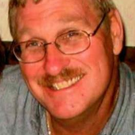Whilma Helen Wolford Willsey
BERNE — To get a vivid sense of the person Whilma Helen Wolford Willsey was, you need only read the recollections of her early life, assembled by her daughter Winifred in 2010 into one remarkable document. It is personal history at its richest and best, calling to life a vanished world that fewer and fewer people can now remember. It was a harsh world in some ways, but also one that offered many pleasures no longer available in today’s more comfortable world.
Although her memoir is more about others than about herself, Mrs. Willsey’s personality shines through the 18 pages: fun-loving, observant, tireless, amused and fascinated by life, and indomitable.
Mrs. Willsey died at home surrounded by family on Wednesday, Nov. 9, 2016, not long before her 88th birthday and not long after celebrating her wedding anniversary with Warren “Mike” Willsey, her husband of 69 years, on Sept. 28.
In 2006, Mrs. Willsey suffered a stroke but “she recovered to a great degree,” says her son Joel.
She was born on Nov. 27, 1928, her memoir relates, in the Knox farmhouse of her grandfather, Frank Wolford, located on the Knox-Gallupville Road, to Herbert and Merta (née Miers) Wolford.
The old farmhouse “came into Wolford hands...just after the American Revolution,” Mrs. Willsey told her daughter, “when the daughter of its owner Assa Abbott married John Wolford Jr.”
A family history that goes back so far is not unusual in the Hilltowns, as both Wolfords and Willseys can attest. But powers of memory like Mrs. Willsey possessed are uncommon.
Her memoir is full of beautifully detailed vignettes, like her memory of a “water trough where the cows drank...spring fed on one end, and with water running out of the other from a little hole...The boards were covered with moss and the water was clear and cool with frogs all around on the ground.”
Mrs. Willsey was the youngest of four children. The eldest, Hilda Merta, died when Hilda was only months old. Mrs. Willsey lost her father to pneumonia when she was less than four years old. Her brother Herbert Jr. survived the illness.
Hard times ensued. The Great Depression was then raging. And her grandfather, Frank Wolford, — her brother later remembered “walking the fields” with him “to repair the neighbors’ stone wall fences” — died soon after his son, Herbert, and the farm had to be sold.
Herbert’s widow was determined to keep the family together and did. She and her children moved to Schoharie to live with Mrs. Willsey’s maternal grandfather, Addison Fisher Miers, over his tin shop.
Mr. Willsey’s only brother, Herbert Jr. — she called him Herbie — gave her a tin slate “with a wood frame around the outside that Grandpa had helped him make. Grandpa didn’t like children too much so the slate always meant a lot to me.”
Mrs. Willsey describes town life with the same verve and detail she recalled farm life: Saturday night baths in the kitchen and free outdoor movies projected onto a screen “hung over the front of the courthouse,” followed by a street dance.
But change was coming. “After the movie theater opened, the free movies stopped. I do believe my life would be a lot different if there had not been the free movies,” Mrs. Willsey speculated many years later.
Names still recalled dot the narrative: “poor old Mrs. Schrom,” Barbara Cromer, Rugie Bagley, Bert who “about every week would come with some food for us.” The family was poor and struggling.
After a year in Schoharie, though, it was back to the Hilltowns and to Berne after Merta remarried. Marvin Zimmer was Mrs. Willsey’s new stepfather and his daughter, Gladys, her new stepsister. Her grandmother Wolford would arrive at Christmas to the sound of sleigh bells. And when Mrs. Wolford was hospitalized after a fall, a sign at the foot of her crank-adjusted bed read, Please Do Not Touch This Crank. ”We had a lot of fun with that,” Mrs. Willsey recollected. Her grandmother was a memorable presence in her life.
So, too, were church picnics and suppers; wartime blackouts; her brother’s self-built cabin; daring swings on wild-grape vines; sled runs that lasted for miles; being snowed in; playing in the ice house; hay mowing — “I used to pray for rain so we wouldn’t do hay”; roller skating at the rink on Knox Cave Road; last-day-of-school picnics at White Sulphur Springs; threshing in the autumn; the Civilian Conservation Corps coming to work on the Zimmer farm; the day the driver drove the school bus into the ditch — “we all got out and went to pick flowers while the driver went to the house to call the school.”
And, perhaps most memorably, the day her engagement to Warren Willsey was announced on Easter in the East Berne church.
She was to have five children with Mr. Willsey. Her family has written in tribute to her: “Operating a dairy farm together for many years, she was a dedicated wife, wonderful mother and, later, grandmother.”
Their tribute portrays a woman living life fully: loving to garden, and to freeze and can its harvest; to make clothes for family and neighbors — “she was an excellent seamstress’; to knit for her children and grandchildren and make dollhouse furniture for them; to read, research family genealogy, and learn about local history.
Many knew her from Duke’s Dairy Bar in East Berne where she was employed in the 1960s.
Many more knew her because Mrs. Willsey was active in the community and in many organizations, including the local Grange, the Berne-Knox-Westerlo Parent-Teachers Association, and the Republican Party. She was a Cub Scout leader and enjoyed hosting 4-H meetings at her home.
She was, her family wrote, “very witty, joking and singing tunes to the end.”
Her son Joel wrote, “She had a great sense of humor and used many old-time sayings and rhymes that were found hilarious by some and embarrassing to some.”
Her daughter Erin had this to say: “I was by my mother's side a lot of the time. In the garden, in the kitchen. I loved farming and learned as much as I could….I am proudly trying to do what she did, and just wish I could do more.”
Her memory will live on for many. And so, too, will her memories, like this lovely one from her memoir: “When Grandma was 18 she had scarlet fever and lost all her hair; every night she would pray to God and ask him to grow her hair back and if He did she would never cut it after that. I used to watch her take it down at night and brush it out and braid it for the night.”
****
Whilma Woford Willsey is survived by her husband, Warren F. “Mike” Willsey.
She is also survived by five children: Winifred Chartier and her husband, Gerry:; Warren Willsey and his wife, Carol; Joel Willsey and his wife, Patty; Amy Willsey; and Erin Bradt and her husband, Ray.
She is also survived by eight grandchildren: Rebecca Chartier-Hobson and her spouse, Erin; Jesse Chartier; Ashley Attoma and her husband, Anthony; Danielle Willsey; Caitlin Rice and her husband, Jake; Graham Willsey and his wife, Chelsea; Dylan Willsey, and Rena Brandt, as well as by many nieces and nephews.
Her sisters, Hilda Wolford and Margerie Wolford Whittaker died before her, as did her brother, Herbert Wolford; stepsister, Gladys Zimmer; and daughter-in-law, Elaine Colose Willsey.
A funeral service was conducted at the Fredenall Funeral Home on Sunday, Nov. 13.
Donations in her memory may be made to Helderberg Ambulance, 978 Cole Hill Road, Berne, NY 12023 or to Community Hospice, 445 New Karner Road, Albany, NY 12205.
— Tim Tulloch


